Ten rules for writing fiction
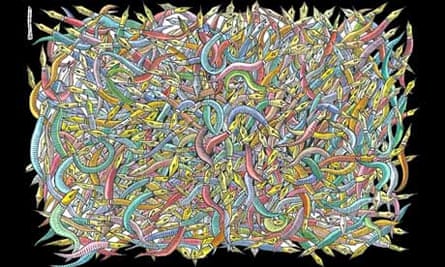
Elmore Leonard: Using adverbs is a mortal sin
1 Never open a book with weather. If it's only to create atmosphere, and not a character's reaction to the weather, you don't want to go on too long. The reader is apt to leaf ahead looking for people. There are exceptions. If you happen to be Barry Lopez, who has more ways than an Eskimo to describe ice and snow in his book Arctic Dreams, you can do all the weather reporting you want.
2 Avoid prologues: they can be annoying, especially a prologue following an introduction that comes after a foreword. But these are ordinarily found in non-fiction. A prologue in a novel is backstory, and you can drop it in anywhere you want. There is a prologue in John Steinbeck's Sweet Thursday, but it's OK because a character in the book makes the point of what my rules are all about. He says: "I like a lot of talk in a book and I don't like to have nobody tell me what the guy that's talking looks like. I want to figure out what he looks like from the way he talks."
3 Never use a verb other than "said" to carry dialogue. The line of dialogue belongs to the character; the verb is the writer sticking his nose in. But "said" is far less intrusive than "grumbled", "gasped", "cautioned", "lied". I once noticed Mary McCarthy ending a line of dialogue with "she asseverated" and had to stop reading and go to the dictionary.
4 Never use an adverb to modify the verb "said" ... he admonished gravely. To use an adverb this way (or almost any way) is a mortal sin. The writer is now exposing himself in earnest, using a word that distracts and can interrupt the rhythm of the exchange. I have a character in one of my books tell how she used to write historical romances "full of rape and adverbs".
5 Keep your exclamation points under control. You are allowed no more than two or three per 100,000 words of prose. If you have the knack of playing with exclaimers the way Tom Wolfe does, you can throw them in by the handful.
6 Never use the words "suddenly" or "all hell broke loose". This rule doesn't require an explanation. I have noticed that writers who use "suddenly" tend to exercise less control in the application of exclamation points.
7 Use regional dialect, patois, sparingly. Once you start spelling words in dialogue phonetically and loading the page with apostrophes, you won't be able to stop. Notice the way Annie Proulx captures the flavour of Wyoming voices in her book of short stories Close Range.
8 Avoid detailed descriptions of characters, which Steinbeck covered. In Ernest Hemingway's "Hills Like White Elephants", what do the "American and the girl with him" look like? "She had taken off her hat and put it on the table." That's the only reference to a physical description in the story.
9 Don't go into great detail describing places and things, unless you're Margaret Atwood and can paint scenes with language. You don't want descriptions that bring the action, the flow of the story, to a standstill.
10 Try to leave out the part that readers tend to skip. Think of what you skip reading a novel: thick paragraphs of prose you can see have too many words in them.
My most important rule is one that sums up the 10: if it sounds like writing, I rewrite it.
Elmore Leonard's 10 Rules of Writing is published next month by Weidenfeld & Nicolson.
Diana Athill
1 Read it aloud to yourself because that's the only way to be sure the rhythms of the sentences are OK (prose rhythms are too complex and subtle to be thought out – they can be got right only by ear).
2 Cut (perhaps that should be CUT): only by having no inessential words can every essential word be made to count.
3 You don't always have to go so far as to murder your darlings – those turns of phrase or images of which you felt extra proud when they appeared on the page – but go back and look at them with a very beady eye. Almost always it turns out that they'd be better dead. (Not every little twinge of satisfaction is suspect – it's the ones which amount to a sort of smug glee you must watch out for.)
Margaret Atwood
1 Take a pencil to write with on aeroplanes. Pens leak. But if the pencil breaks, you can't sharpen it on the plane, because you can't take knives with you. Therefore: take two pencils.
2 If both pencils break, you can do a rough sharpening job with a nail file of the metal or glass type.
3 Take something to write on. Paper is good. In a pinch, pieces of wood or your arm will do.
4 If you're using a computer, always safeguard new text with a memory stick.
5 Do back exercises. Pain is distracting.
6 Hold the reader's attention. (This is likely to work better if you can hold your own.) But you don't know who the reader is, so it's like shooting fish with a slingshot in the dark. What fascinates A will bore the pants off B.
7 You most likely need a thesaurus, a rudimentary grammar book, and a grip on reality. This latter means: there's no free lunch. Writing is work. It's also gambling. You don't get a pension plan. Other people can help you a bit, but essentially you're on your own. Nobody is making you do this: you chose it, so don't whine.
8 You can never read your own book with the innocent anticipation that comes with that first delicious page of a new book, because you wrote the thing. You've been backstage. You've seen how the rabbits were smuggled into the hat. Therefore ask a reading friend or two to look at it before you give it to anyone in the publishing business. This friend should not be someone with whom you have a romantic relationship, unless you want to break up.
9 Don't sit down in the middle of the woods. If you're lost in the plot or blocked, retrace your steps to where you went wrong. Then take the other road. And/or change the person. Change the tense. Change the opening page.
10 Prayer might work. Or reading something else. Or a constant visualisation of the holy grail that is the finished, published version of your resplendent book.
Roddy Doyle
1 Do not place a photograph of your favourite author on your desk, especially if the author is one of the famous ones who committed suicide.
2 Do be kind to yourself. Fill pages as quickly as possible; double space, or write on every second line. Regard every new page as a small triumph –
3 Until you get to Page 50. Then calm down, and start worrying about the quality. Do feel anxiety – it's the job.
4 Do give the work a name as quickly as possible. Own it, and see it. Dickens knew Bleak House was going to be called Bleak House before he started writing it. The rest must have been easy.
5 Do restrict your browsing to a few websites a day. Don't go near the online bookies – unless it's research.
6 Do keep a thesaurus, but in the shed at the back of the garden or behind the fridge, somewhere that demands travel or effort. Chances are the words that come into your head will do fine, eg "horse", "ran", "said".
7 Do, occasionally, give in to temptation. Wash the kitchen floor, hang out the washing. It's research.
8 Do change your mind. Good ideas are often murdered by better ones. I was working on a novel about a band called the Partitions. Then I decided to call them the Commitments.
9 Do not search amazon.co.uk for the book you haven't written yet.
10 Do spend a few minutes a day working on the cover biog – "He divides his time between Kabul and Tierra del Fuego." But then get back to work.
Helen Dunmore
1 Finish the day's writing when you still want to continue.
2 Listen to what you have written. A dud rhythm in a passage of dialogue may show that you don't yet understand the characters well enough to write in their voices.
3 Read Keats's letters.
4 Reread, rewrite, reread, rewrite. If it still doesn't work, throw it away. It's a nice feeling, and you don't want to be cluttered with the corpses of poems and stories which have everything in them except the life they need.
5 Learn poems by heart.
6 Join professional organisations which advance the collective rights of authors.
7 A problem with a piece of writing often clarifies itself if you go for a long walk.
8 If you fear that taking care of your children and household will damage your writing, think of JG Ballard.
9 Don't worry about posterity – as Larkin (no sentimentalist) observed "What will survive of us is love".
Geoff Dyer
1 Never worry about the commercial possibilities of a project. That stuff is for agents and editors to fret over – or not. Conversation with my American publisher. Me: "I'm writing a book so boring, of such limited commercial appeal, that if you publish it, it will probably cost you your job." Publisher: "That's exactly what makes me want to stay in my job."
2 Don't write in public places. In the early 1990s I went to live in Paris. The usual writerly reasons: back then, if you were caught writing in a pub in England, you could get your head kicked in, whereas in Paris, dans les cafés . . . Since then I've developed an aversion to writing in public. I now think it should be done only in private, like any other lavatorial activity.
3 Don't be one of those writers who sentence themselves to a lifetime of sucking up to Nabokov.
4 If you use a computer, constantly refine and expand your autocorrect settings. The only reason I stay loyal to my piece-of-shit computer is that I have invested so much ingenuity into building one of the great autocorrect files in literary history. Perfectly formed and spelt words emerge from a few brief keystrokes: "Niet" becomes "Nietzsche", "phoy" becomes "photography" and so on. Genius!
5 Keep a diary. The biggest regret of my writing life is that I have never kept a journal or a diary.
6 Have regrets. They are fuel. On the page they flare into desire.
7 Have more than one idea on the go at any one time. If it's a choice between writing a book and doing nothing I will always choose the latter. It's only if I have an idea for two books that I choose one rather than the other. I always have to feel that I'm bunking off from something.
8 Beware of clichés. Not just the clichés that Martin Amis is at war with. There are clichés of response as well as expression. There are clichés of observation and of thought – even of conception. Many novels, even quite a few adequately written ones, are clichés of form which conform to clichés of expectation.
9 Do it every day. Make a habit of putting your observations into words and gradually this will become instinct. This is the most important rule of all and, naturally, I don't follow it.
10 Never ride a bike with the brakes on. If something is proving too difficult, give up and do something else. Try to live without resort to perseverance. But writing is all about perseverance. You've got to stick at it. In my 30s I used to go to the gym even though I hated it. The purpose of going to the gym was to postpone the day when I would stop going. That's what writing is to me: a way of postponing the day when I won't do it any more, the day when I will sink into a depression so profound it will be indistinguishable from perfect bliss.
Anne Enright
1 The first 12 years are the worst.
2 The way to write a book is to actually write a book. A pen is useful, typing is also good. Keep putting words on the page.
3 Only bad writers think that their work is really good.
4 Description is hard. Remember that all description is an opinion about the world. Find a place to stand.
5 Write whatever way you like. Fiction is made of words on a page; reality is made of something else. It doesn't matter how "real" your story is, or how "made up": what matters is its necessity.
6 Try to be accurate about stuff.
7 Imagine that you are dying. If you had a terminal disease would you finish this book? Why not? The thing that annoys this 10-weeks-to-live self is the thing that is wrong with the book. So change it. Stop arguing with yourself. Change it. See? Easy. And no one had to die.
8 You can also do all that with whiskey.
9 Have fun.
10 Remember, if you sit at your desk for 15 or 20 years, every day, not counting weekends, it changes you. It just does. It may not improve your temper, but it fixes something else. It makes you more free.
Richard Ford
1 Marry somebody you love and who thinks you being a writer's a good idea.
2 Don't have children.
3 Don't read your reviews.
4 Don't write reviews. (Your judgment's always tainted.)
5 Don't have arguments with your wife in the morning, or late at night.
6 Don't drink and write at the same time.
7 Don't write letters to the editor. (No one cares.)
8 Don't wish ill on your colleagues.
9 Try to think of others' good luck as encouragement to yourself.
10 Don't take any shit if you can possibly help it.
Jonathan Franzen
1 The reader is a friend, not an adversary, not a spectator.
2 Fiction that isn't an author's personal adventure into the frightening or the unknown isn't worth writing for anything but money.
3 Never use the word "then" as a conjunction – we have "and" for this purpose. Substituting "then" is the lazy or tone-deaf writer's non-solution to the problem of too many "ands" on the page.
4 Write in the third person unless a really distinctive first-person voice offers itself irresistibly.
5 When information becomes free and universally accessible, voluminous research for a novel is devalued along with it.
6 The most purely autobiographical fiction requires pure invention. Nobody ever wrote a more autobiographical story than "The Metamorphosis".
7 You see more sitting still than chasing after.
8 It's doubtful that anyone with an internet connection at his workplace is writing good fiction.
9 Interesting verbs are seldom very interesting.
10 You have to love before you can be relentless.
Esther Freud
1 Cut out the metaphors and similes. In my first book I promised myself I wouldn't use any and I slipped up during a sunset in chapter 11. I still blush when I come across it.
2 A story needs rhythm. Read it aloud to yourself. If it doesn't spin a bit of magic, it's missing something.
3 Editing is everything. Cut until you can cut no more. What is left often springs into life.
4 Find your best time of the day for writing and write. Don't let anything else interfere. Afterwards it won't matter to you that the kitchen is a mess.
5 Don't wait for inspiration. Discipline is the key.
6 Trust your reader. Not everything needs to be explained. If you really know something, and breathe life into it, they'll know it too.
7 Never forget, even your own rules are there to be broken.
Neil Gaiman
1 Write.
2 Put one word after another. Find the right word, put it down.
3 Finish what you're writing. Whatever you have to do to finish it, finish it.
4 Put it aside. Read it pretending you've never read it before. Show it to friends whose opinion you respect and who like the kind of thing that this is.
5 Remember: when people tell you something's wrong or doesn't work for them, they are almost always right. When they tell you exactly what they think is wrong and how to fix it, they are almost always wrong.
6 Fix it. Remember that, sooner or later, before it ever reaches perfection, you will have to let it go and move on and start to write the next thing. Perfection is like chasing the horizon. Keep moving.
7 Laugh at your own jokes.
8 The main rule of writing is that if you do it with enough assurance and confidence, you're allowed to do whatever you like. (That may be a rule for life as well as for writing. But it's definitely true for writing.) So write your story as it needs to be written. Write it honestly, and tell it as best you can. I'm not sure that there are any other rules. Not ones that matter.
David Hare
1 Write only when you have something to say.
2 Never take advice from anyone with no investment in the outcome.
3 Style is the art of getting yourself out of the way, not putting yourself in it.
4 If nobody will put your play on, put it on yourself.
5 Jokes are like hands and feet for a painter. They may not be what you want to end up doing but you have to master them in the meanwhile.
6 Theatre primarily belongs to the young.
7 No one has ever achieved consistency as a screenwriter.
8 Never go to a TV personality festival masquerading as a literary festival.
9 Never complain of being misunderstood. You can choose to be understood, or you can choose not to.
10 The two most depressing words in the English language are "literary fiction".
PD James
1 Increase your word power. Words are the raw material of our craft. The greater your vocabulary the more effective your writing. We who write in English are fortunate to have the richest and most versatile language in the world. Respect it.
2 Read widely and with discrimination. Bad writing is contagious.
3 Don't just plan to write – write. It is only by writing, not dreaming about it, that we develop our own style.
4 Write what you need to write, not what is currently popular or what you think will sell.
5 Open your mind to new experiences, particularly to the study of other people. Nothing that happens to a writer – however happy, however tragic – is ever wasted.
AL Kennedy
1 Have humility. Older/more experienced/more convincing writers may offer rules and varieties of advice. Consider what they say. However, don't automatically give them charge of your brain, or anything else – they might be bitter, twisted, burned-out, manipulative, or just not very like you.
2 Have more humility. Remember you don't know the limits of your own abilities. Successful or not, if you keep pushing beyond yourself, you will enrich your own life – and maybe even please a few strangers.
3 Defend others. You can, of course, steal stories and attributes from family and friends, fill in filecards after lovemaking and so forth. It might be better to celebrate those you love – and love itself – by writing in such a way that everyone keeps their privacy and dignity intact.
4 Defend your work. Organisations, institutions and individuals will often think they know best about your work – especially if they are paying you. When you genuinely believe their decisions would damage your work – walk away. Run away. The money doesn't matter that much.
5 Defend yourself. Find out what keeps you happy, motivated and creative.
6 Write. No amount of self-inflicted misery, altered states, black pullovers or being publicly obnoxious will ever add up to your being a writer. Writers write. On you go.
7 Read. As much as you can. As deeply and widely and nourishingly and irritatingly as you can. And the good things will make you remember them, so you won't need to take notes.
8 Be without fear. This is impossible, but let the small fears drive your rewriting and set aside the large ones until they behave – then use them, maybe even write them. Too much fear and all you'll get is silence.
9 Remember you love writing. It wouldn't be worth it if you didn't. If the love fades, do what you need to and get it back.
10 Remember writing doesn't love you. It doesn't care. Nevertheless, it can behave with remarkable generosity. Speak well of it, encourage others, pass it on.
Hilary Mantel1 Are you serious about this? Then get an accountant.
2 Read Becoming a Writer, by Dorothea Brande. Then do what it says, including the tasks you think are impossible. You will particularly hate the advice to write first thing in the morning, but if you can manage it, it might well be the best thing you ever do for yourself. This book is about becoming a writer from the inside out. Many later advice manuals derive from it. You don't really need any others, though if you want to boost your confidence, "how to" books seldom do any harm. You can kick-start a whole book with some little writing exercise.
3 Write a book you'd like to read. If you wouldn't read it, why would anybody else? Don't write for a perceived audience or market. It may well have vanished by the time your book's ready.
4 If you have a good story idea, don't assume it must form a prose narrative. It may work better as a play, a screenplay or a poem. Be flexible.
5 Be aware that anything that appears before "Chapter One" may be skipped. Don't put your vital clue there.
6 First paragraphs can often be struck out. Are you performing a haka, or just shuffling your feet?
7 Concentrate your narrative energy on the point of change. This is especially important for historical fiction. When your character is new to a place, or things alter around them, that's the point to step back and fill in the details of their world. People don't notice their everyday surroundings and daily routine, so when writers describe them it can sound as if they're trying too hard to instruct the reader.
8 Description must work for its place. It can't be simply ornamental. It usually works best if it has a human element; it is more effective if it comes from an implied viewpoint, rather than from the eye of God. If description is coloured by the viewpoint of the character who is doing the noticing, it becomes, in effect, part of character definition and part of the action.
9 If you get stuck, get away from your desk. Take a walk, take a bath, go to sleep, make a pie, draw, listen to music, meditate, exercise; whatever you do, don't just stick there scowling at the problem. But don't make telephone calls or go to a party; if you do, other people's words will pour in where your lost words should be. Open a gap for them, create a space. Be patient.
10 Be ready for anything. Each new story has different demands and may throw up reasons to break these and all other rules. Except number one: you can't give your soul to literature if you're thinking about income tax.
Michael Moorcock
1 My first rule was given to me by TH White, author of The Sword in the Stone and other Arthurian fantasies and was: Read. Read everything you can lay hands on. I always advise people who want to write a fantasy or science fiction or romance to stop reading everything in those genres and start reading everything else from Bunyan to Byatt.
2 Find an author you admire (mine was Conrad) and copy their plots and characters in order to tell your own story, just as people learn to draw and paint by copying the masters.
3 Introduce your main characters and themes in the first third of your novel.
4 If you are writing a plot-driven genre novel make sure all your major themes/plot elements are introduced in the first third, which you can call the introduction.
5 Develop your themes and characters in your second third, the development.
6 Resolve your themes, mysteries and so on in the final third, the resolution.
7 For a good melodrama study the famous "Lester Dent master plot formula" which you can find online. It was written to show how to write a short story for the pulps, but can be adapted successfully for most stories of any length or genre.
8 If possible have something going on while you have your characters delivering exposition or philosophising. This helps retain dramatic tension.
9 Carrot and stick – have protagonists pursued (by an obsession or a villain) and pursuing (idea, object, person, mystery).
10 Ignore all proferred rules and create your own, suitable for what you want to say.
Michael Morpurgo
1 The prerequisite for me is to keep my well of ideas full. This means living as full and varied a life as possible, to have my antennae out all the time.
2 Ted Hughes gave me this advice and it works wonders: record moments, fleeting impressions, overheard dialogue, your own sadnesses and bewilderments and joys.
3 A notion for a story is for me a confluence of real events, historical perhaps, or from my own memory to create an exciting fusion.
4 It is the gestation time which counts.
5 Once the skeleton of the story is ready I begin talking about it, mostly to Clare, my wife, sounding her out.
6 By the time I sit down and face the blank page I am raring to go. I tell it as if I'm talking to my best friend or one of my grandchildren.
7 Once a chapter is scribbled down rough – I write very small so I don't have to turn the page and face the next empty one – Clare puts it on the word processor, prints it out, sometimes with her own comments added.
8 When I'm deep inside a story, living it as I write, I honestly don't know what will happen. I try not to dictate it, not to play God.
9 Once the book is finished in its first draft, I read it out loud to myself. How it sounds is hugely important.
10 With all editing, no matter how sensitive – and I've been very lucky here – I react sulkily at first, but then I settle down and get on with it, and a year later I have my book in my hand.
Andrew Motion
1 Decide when in the day (or night) it best suits you to write, and organise your life accordingly.
2 Think with your senses as well as your brain.
3 Honour the miraculousness of the ordinary.
4 Lock different characters/elements in a room and tell them to get on.
5 Remember there is no such thing as nonsense.
6 Bear in mind Wilde's dictum that "only mediocrities develop" – and challenge it.
7 Let your work stand before deciding whether or not to serve.
8 Think big and stay particular.
9 Write for tomorrow, not for today.
10 Work hard.
Joyce Carol Oates
1 Don't try to anticipate an "ideal reader" – there may be one, but he/she is reading someone else.
2 Don't try to anticipate an "ideal reader" – except for yourself perhaps, sometime in the future.
3 Be your own editor/critic. Sympathetic but merciless!
4 Unless you are writing something very avant-garde – all gnarled, snarled and "obscure" – be alert for possibilities of paragraphing.
5 Unless you are writing something very post-modernist – self-conscious, self-reflexive and "provocative" – be alert for possibilities of using plain familiar words in place of polysyllabic "big" words.
6 Keep in mind Oscar Wilde: "A little sincerity is a dangerous thing, and a great deal of it is absolutely fatal."
7 Keep a light, hopeful heart. But expect the worst.
Annie Proulx
1 Proceed slowly and take care.
2 To ensure that you proceed slowly, write by hand.
3 Write slowly and by hand only about subjects that interest you.
4 Develop craftsmanship through years of wide reading.
5 Rewrite and edit until you achieve the most felicitous phrase/sentence/paragraph/page/story/chapter.
Philip Pullman
My main rule is to say no to things like this, which tempt me away from my proper work.
Ian Rankin
1 Read lots.
2 Write lots.
3 Learn to be self-critical.
4 Learn what criticism to accept.
5 Be persistent.
6 Have a story worth telling.
7 Don't give up.
8 Know the market.
9 Get lucky.
10 Stay lucky.
Will Self
1 Don't look back until you've written an entire draft, just begin each day from the last sentence you wrote the preceeding day. This prevents those cringing feelings, and means that you have a substantial body of work before you get down to the real work which is all in . . .
2 The edit.
3 Always carry a notebook. And I mean always. The short-term memory only retains information for three minutes; unless it is committed to paper you can lose an idea for ever.
4 Stop reading fiction – it's all lies anyway, and it doesn't have anything to tell you that you don't know already (assuming, that is, you've read a great deal of fiction in the past; if you haven't you have no business whatsoever being a writer of fiction).
5 You know that sickening feeling of inadequacy and over-exposure you feel when you look upon your own empurpled prose? Relax into the awareness that this ghastly sensation will never, ever leave you, no matter how successful and publicly lauded you become. It is intrinsic to the real business of writing and should be cherished.
6 Live life and write about life. Of the making of many books there is indeed no end, but there are more than enough books about books.
7 By the same token remember how much time people spend watching TV. If you're writing a novel with a contemporary setting there need to be long passages where nothing happens save for TV watching: "Later, George watched Grand Designs while eating HobNobs. Later still he watched the shopping channel for a while . . ."
8 The writing life is essentially one of solitary confinement – if you can't deal with this you needn't apply.
9 Oh, and not forgetting the occasional beating administered by the sadistic guards of the imagination.
10 Regard yourself as a small corporation of one. Take yourself off on team-building exercises (long walks). Hold a Christmas party every year at which you stand in the corner of your writing room, shouting very loudly to yourself while drinking a bottle of white wine. Then masturbate under the desk. The following day you will feel a deep and cohering sense of embarrassment.
Helen Simpson
The nearest I have to a rule is a Post-it on the wall in front of my desk saying "Faire et se taire" (Flaubert), which I translate for myself as "Shut up and get on with it."
Zadie Smith
1 When still a child, make sure you read a lot of books. Spend more time doing this than anything else.
2 When an adult, try to read your own work as a stranger would read it, or even better, as an enemy would.
3 Don't romanticise your "vocation". You can either write good sentences or you can't. There is no "writer's lifestyle". All that matters is what you leave on the page.
4 Avoid your weaknesses. But do this without telling yourself that the things you can't do aren't worth doing. Don't mask self-doubt with contempt.
5 Leave a decent space of time between writing something and editing it.
6 Avoid cliques, gangs, groups. The presence of a crowd won't make your writing any better than it is.
7 Work on a computer that is disconnected from the internet.
8 Protect the time and space in which you write. Keep everybody away from it, even the people who are most important to you.
9 Don't confuse honours with achievement.
10 Tell the truth through whichever veil comes to hand – but tell it. Resign yourself to the lifelong sadness that comes from never being satisfied.
Colm Tóibín
1 Finish everything you start.
2 Get on with it.
3 Stay in your mental pyjamas all day.
4 Stop feeling sorry for yourself.
5 No alcohol, sex or drugs while you are working.
6 Work in the morning, a short break for lunch, work in the afternoon and then watch the six o'clock news and then go back to work until bed-time. Before bed, listen to Schubert, preferably some songs.
7 If you have to read, to cheer yourself up read biographies of writers who went insane.
8 On Saturdays, you can watch an old Bergman film, preferably Persona or Autumn Sonata.
9 No going to London.
10 No going anywhere else either.
Rose Tremain
1 Forget the boring old dictum "write about what you know". Instead, seek out an unknown yet knowable area of experience that's going to enhance your understanding of the world and write about that.
2 Nevertheless, remember that in the particularity of your own life lies the seedcorn that will feed your imaginative work. So don't throw it all away on autobiography. (There are quite enough writers' memoirs out there already.)
3 Never be satisfied with a first draft. In fact, never be satisfied with your own stuff at all, until you're certain it's as good as your finite powers can enable it to be.
4 Listen to the criticisms and preferences of your trusted "first readers".
5 When an idea comes, spend silent time with it. Remember Keats's idea of Negative Capability and Kipling's advice to "drift, wait and obey". Along with your gathering of hard data, allow yourself also to dream your idea into being.
6 In the planning stage of a book, don't plan the ending. It has to be earned by all that will go before it.
7 Respect the way characters may change once they've got 50 pages of life in them. Revisit your plan at this stage and see whether certain things have to be altered to take account of these changes.
8 If you're writing historical fiction, don't have well-known real characters as your main protagonists. This will only create biographical unease in the readers and send them back to the history books. If you must write about real people, then do something post-modern and playful with them.
9 Learn from cinema. Be economic with descriptions. Sort out the telling detail from the lifeless one. Write dialogue that people would actually speak.
10 Never begin the book when you feel you want to begin it, but hold off a while longer.
Sarah Waters
1 Read like mad. But try to do it analytically – which can be hard, because the better and more compelling a novel is, the less conscious you will be of its devices. It's worth trying to figure those devices out, however: they might come in useful in your own work. I find watching films also instructive. Nearly every modern Hollywood blockbuster is hopelessly long and baggy. Trying to visualise the much better films they would have been with a few radical cuts is a great exercise in the art of story-telling. Which leads me on to . . .
2 Cut like crazy. Less is more. I've often read manuscripts – including my own – where I've got to the beginning of, say, chapter two and have thought: "This is where the novel should actually start." A huge amount of information about character and backstory can be conveyed through small detail. The emotional attachment you feel to a scene or a chapter will fade as you move on to other stories. Be business-like about it. In fact . . .
3 Treat writing as a job. Be disciplined. Lots of writers get a bit OCD-ish about this. Graham Greene famously wrote 500 words a day. Jean Plaidy managed 5,000 before lunch, then spent the afternoon answering fan mail. My minimum is 1,000 words a day – which is sometimes easy to achieve, and is sometimes, frankly, like shitting a brick, but I will make myself stay at my desk until I've got there, because I know that by doing that I am inching the book forward. Those 1,000 words might well be rubbish – they often are. But then, it is always easier to return to rubbish words at a later date and make them better.
4 Writing fiction is not "self-expression" or "therapy". Novels are for readers, and writing them means the crafty, patient, selfless construction of effects. I think of my novels as being something like fairground rides: my job is to strap the reader into their car at the start of chapter one, then trundle and whizz them through scenes and surprises, on a carefully planned route, and at a finely engineered pace.
5 Respect your characters, even the minor ones. In art, as in life, everyone is the hero of their own particular story; it is worth thinking about what your minor characters' stories are, even though they may intersect only slightly with your protagonist's. At the same time . . .
6 Don't overcrowd the narrative. Characters should be individualised, but functional – like figures in a painting. Think of Hieronymus Bosch's Christ Mocked, in which a patiently suffering Jesus is closely surrounded by four threatening men. Each of the characters is unique, and yet each represents a type; and collectively they form a narrative that is all the more powerful for being so tightly and so economically constructed. On a similar theme . . .
7 Don't overwrite. Avoid the redundant phrases, the distracting adjectives, the unnecessary adverbs. Beginners, especially, seem to think that writing fiction needs a special kind of flowery prose, completely unlike any sort of language one might encounter in day-to-day life. This is a misapprehension about how the effects of fiction are produced, and can be dispelled by obeying Rule 1. To read some of the work of Colm Tóibín or Cormac McCarthy, for example, is to discover how a deliberately limited vocabulary can produce an astonishing emotional punch.
8 Pace is crucial. Fine writing isn't enough. Writing students can be great at producing a single page of well-crafted prose; what they sometimes lack is the ability to take the reader on a journey, with all the changes of terrain, speed and mood that a long journey involves. Again, I find that looking at films can help. Most novels will want to move close, linger, move back, move on, in pretty cinematic ways.
9 Don't panic. Midway through writing a novel, I have regularly experienced moments of bowel-curdling terror, as I contemplate the drivel on the screen before me and see beyond it, in quick succession, the derisive reviews, the friends' embarrassment, the failing career, the dwindling income, the repossessed house, the divorce . . . Working doggedly on through crises like these, however, has always got me there in the end. Leaving the desk for a while can help. Talking the problem through can help me recall what I was trying to achieve before I got stuck. Going for a long walk almost always gets me thinking about my manuscript in a slightly new way. And if all else fails, there's prayer. St Francis de Sales, the patron saint of writers, has often helped me out in a crisis. If you want to spread your net more widely, you could try appealing to Calliope, the muse of epic poetry, too.
10 Talent trumps all. If you're a really great writer, none of these rules need apply. If James Baldwin had felt the need to whip up the pace a bit, he could never have achieved the extended lyrical intensity of Giovanni's Room. Without "overwritten" prose, we would have none of the linguistic exuberance of a Dickens or an Angela Carter. If everyone was economical with their characters, there would be no Wolf Hall . . . For the rest of us, however, rules remain important. And, crucially, only by understanding what they're for and how they work can you begin to experiment with breaking them.
Jeanette Winterson
1 Turn up for work. Discipline allows creative freedom. No discipline equals no freedom.
2 Never stop when you are stuck. You may not be able to solve the problem, but turn aside and write something else. Do not stop altogether.
3 Love what you do.
4 Be honest with yourself. If you are no good, accept it. If the work you are doing is no good, accept it.
5 Don't hold on to poor work. If it was bad when it went in the drawer it will be just as bad when it comes out.
6 Take no notice of anyone you don't respect.
7 Take no notice of anyone with a gender agenda. A lot of men still think that women lack imagination of the fiery kind.
8 Be ambitious for the work and not for the reward.
9 Trust your creativity.
10 Enjoy this work!





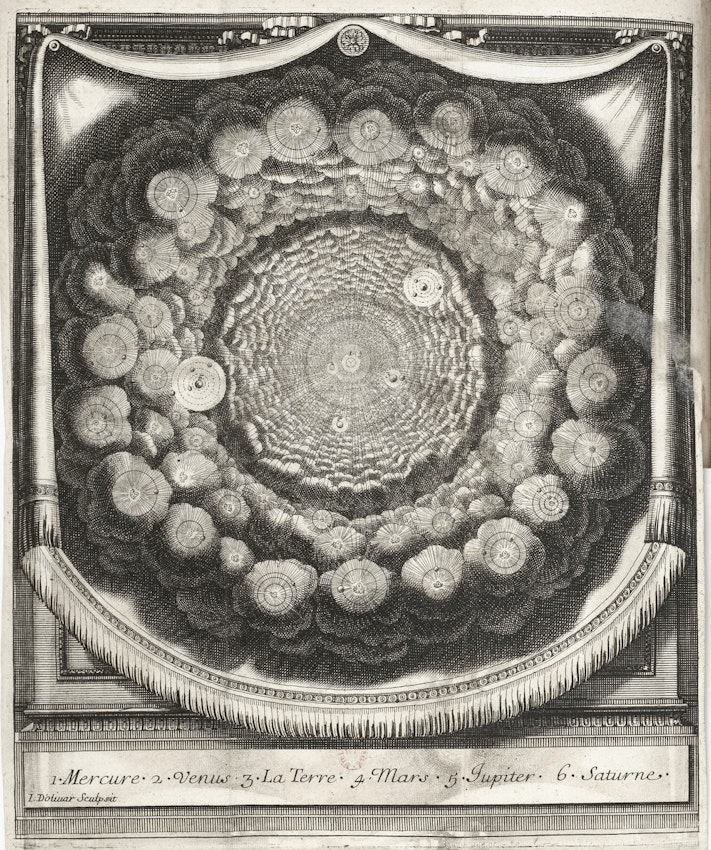







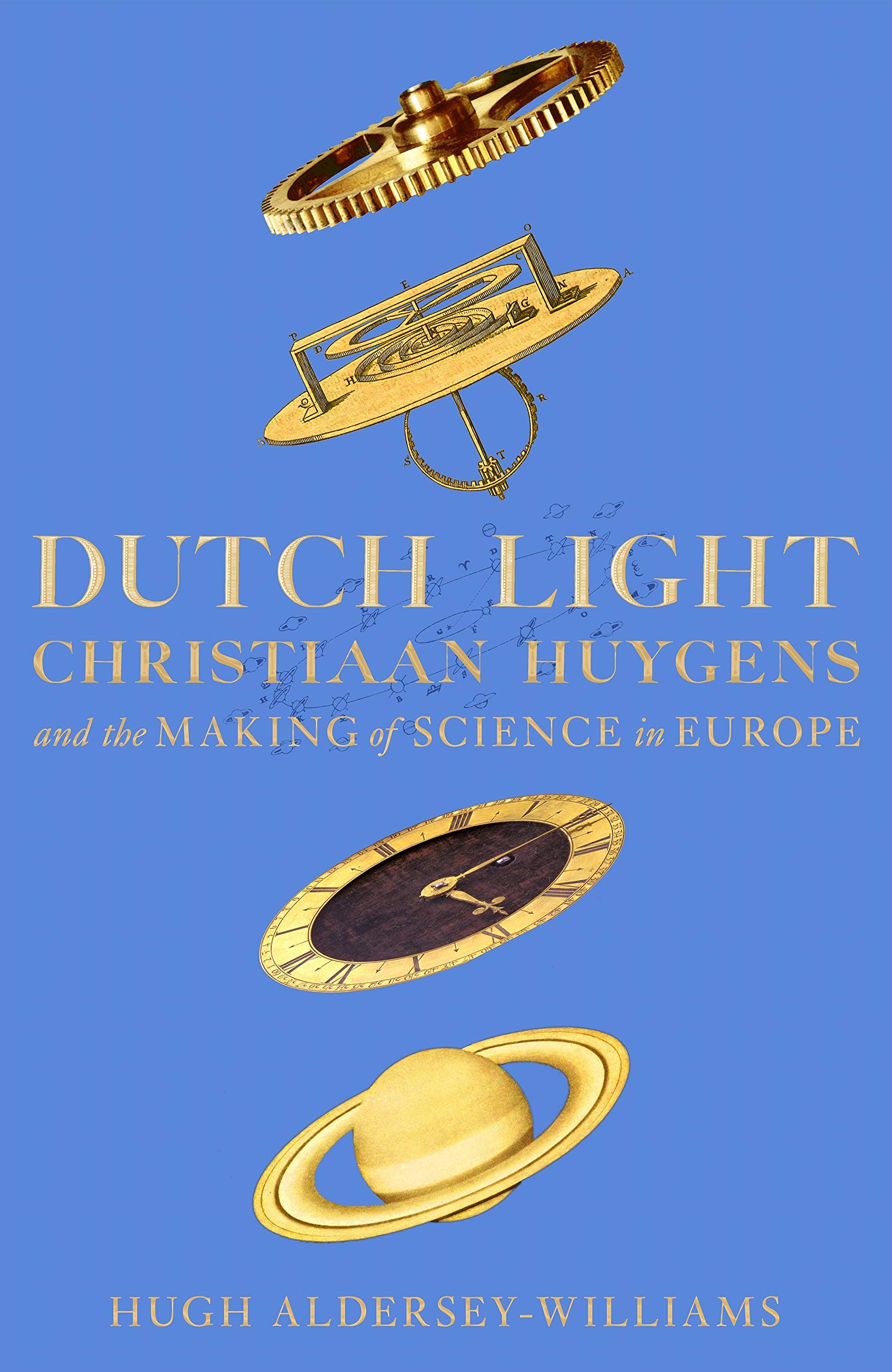
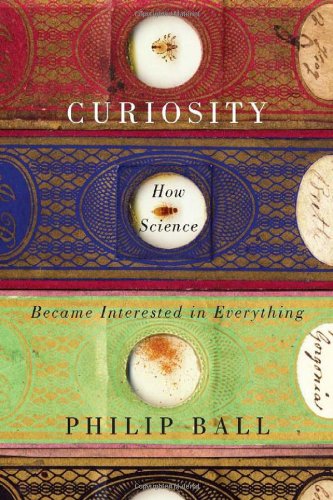

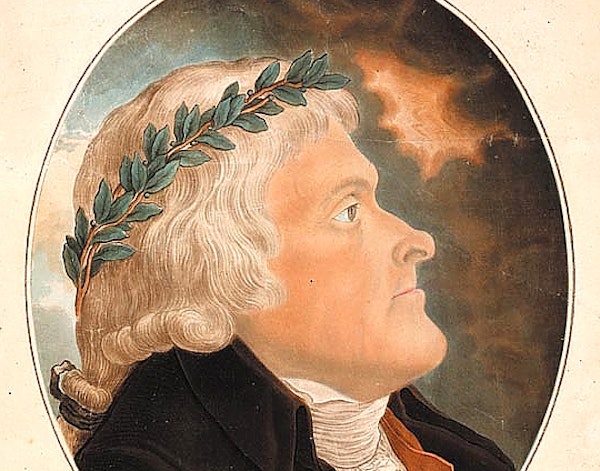

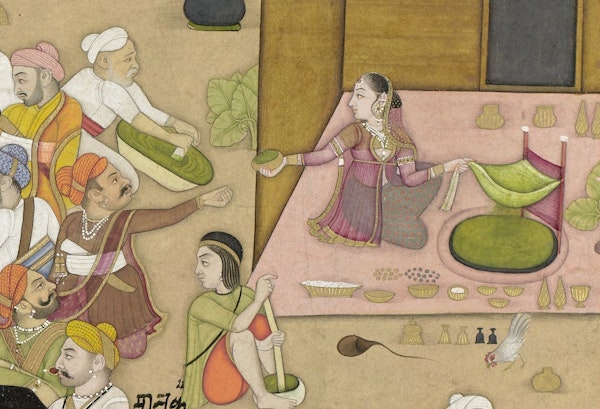
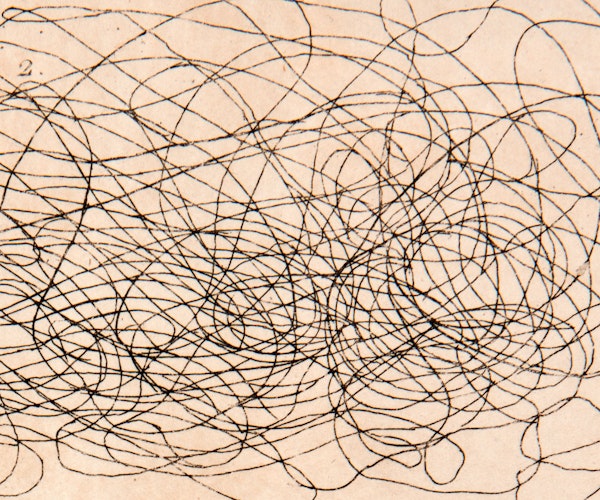
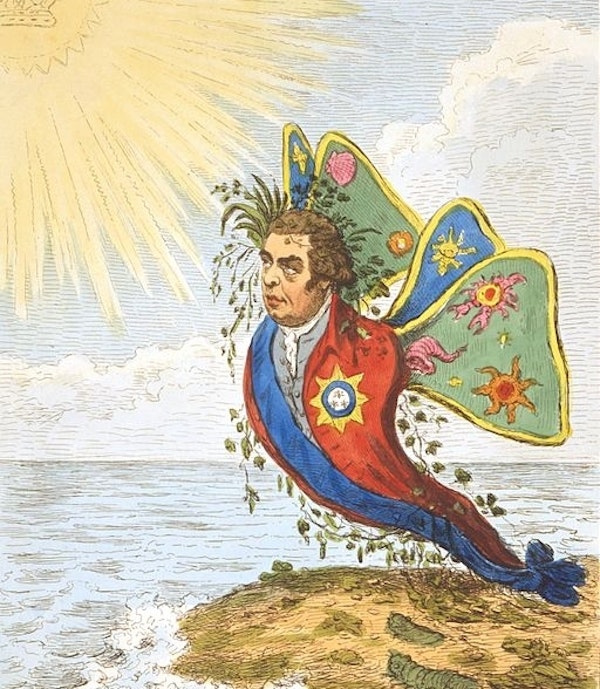
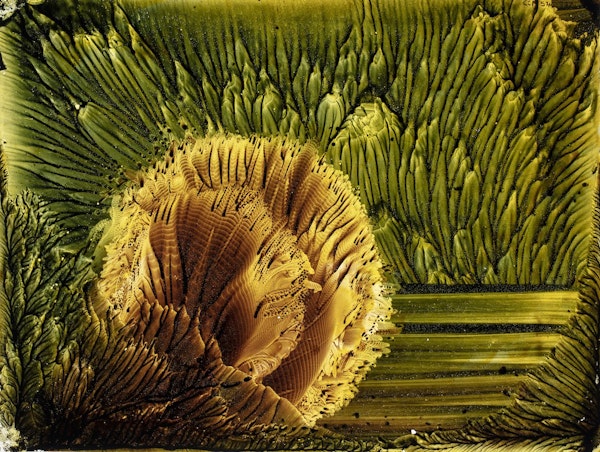
%3B_two_fruiting_bodie_Wellcome_V0043330+copy.jpg?w=600)